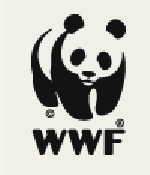PROGRAM ASSOCIATE – CHITWAN ANNAPURNA LANDSCAPE, HARIYO BAN PROGRAM (Based in Pokhara)
Major Responsibilities:
The Program Associate- Chitwan Annapurna Landscape (CHAL) will be responsible for implementation and monitoring of Hariyo Ban Program activities under CHAL program with a special focus in combating wildlife crimes activities. S/he will coordinate and collaborate with communities, CBAPUs and local implementing partners for execution of wildlife crime control program activities in CHAL areas.
Qualifications:
A Bachelors degree in Forestry science, NRM, Environmental Science or a related field is required with at least 2 years of experience in natural resource management and community based conservation. It is essential that the incumbent is technically proficient and qualified in the conservation and crime control field of work.
TOR PROGRAM ASSOCIATE – CHITWAN ANNAPURNA LANDSCAPE, HARIYO BAN PROGRAM
Interested applicants are requested to download the application form and send the same with an application letter to the email address hr@wwfnepal.org.
Please mention the position you are applying for as the subject. Emails without an application letter and completed application form will not be entertained. Only shortlisted candidates will be informed. Detailed TOR for the mentioned position can be downloaded.
*Apply before: 17:00 hours on 27th August, 2017.
This Job is expired. The Company is no longer accepting applications for this position.
WWF is the world’s leading independent conservation organization originated from Switzerland in 1961 and currently running in more than 100 countries across 6 continents. The program started from conservation of wildlife to broader concept of building future where humans can live in harmony with nature. WWF has created 1,480 ecoregions that categorize the world into its natural ecosystems. Nepal with Bhutan, northeast India, southeast Tibet and northern Myanmar, falls under the Eastern Himalaya region housing the threatened species Snow Leopards, Bengal Tigers and One-horned Rhinos.
It was in 1967, WWF initiated WWF Nepal with a rhino conservation program in Chitwan. To keep up with the evolving face of conservation and environmental movement, WWF Nepal’s focus progressed from its localized efforts in conservation of single species in 1960s, integrated conservation and development approach in 1990s, to a new horizon of landscape level conservation encompassing national, regional and global scales of complexity in early 2000s.
